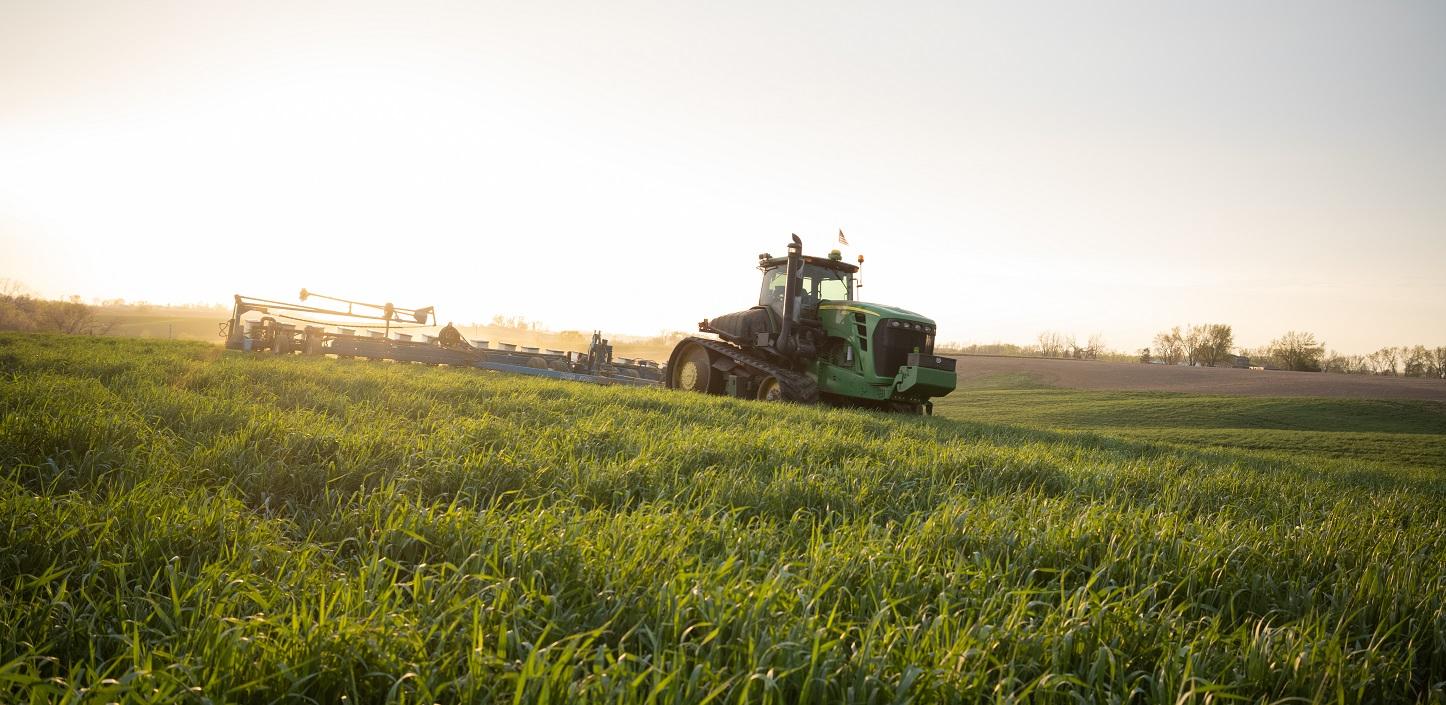
Farmers for Soil Health
In partnership with the Farmers for Soil Health collaboration and with pending support from the U.S. Department of Agriculture’s Partnerships for Climate Smart Commodities, the National Fish and Wildlife Foundation (NFWF) anticipates awarding competitive grants to accelerate the voluntary adoption of cover crops on corn and soybean farms in 20 states.
Farmers for Soil Health is a collaboration of National Corn Growers Association, the United Soybean Board, the National Pork Board, and other partners, with a goal of encouraging farmers to expand their adoption of cover crops to 30 million acres nationwide by 2030.
As of the 2017 USDA Census, cover crops represented 15.4 million acres. Although corn and soybeans represent more than half of all U.S. row crop acres, at about 180 million acres, according to USDA’s Ag Resource Management Survey, only about 5 percent of corn and 8 percent of soybean acres utilize cover crops.
Cover crops are grown between harvested crops to protect soil from erosion, store nutrients, increase water infiltration, and improve soil structure. The conservation impact of cover cropping systems is significant—increased carbon sequestration, improved water quality, and even habitat benefits for pollinators or other wildlife.
Farmers for Soil Health will accelerate long-term cover crop adoption by creating a platform to incentivize farmers through a marketplace that efficiently quantifies, verifies, and facilitates the sale of ecosystem benefits. FSH will create a new transition program that will build cover crop capacity nationwide.
Through this funding opportunity, FSH will support and expand technical assistance, enrollment, and education programs in its targeted states. This funding opportunity is limited to the 20 states targeted in the Farmers for Soil Health Partnership: Delaware, Illinois, Indiana, Iowa, Kansas, Kentucky, Maryland, Michigan, Minnesota, Missouri, Nebraska, New York, North Carolina, North Dakota, Ohio, Pennsylvania, South Dakota, Tennessee, Virginia, and Wisconsin.
| 2023 Grant Slate | Download the PDF |
Director, Central Regional Office
Program Director, Central Region Working Lands
Manager, Central Region Working Lands
Regional Program Coordinator